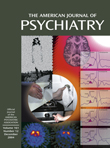A Longitudinal Evaluation of the Relationship Between Reproductive Status and Mood in Perimenopausal Women
Abstract
OBJECTIVE: Mood and reproductive function were prospectively evaluated in asymptomatic premenopausal women to determine whether the onset of depression was temporally linked to the perimenopause. METHOD: Twenty-nine asymptomatic, regularly cycling women were monitored longitudinally for an average of 5 years until at least 6 months of amenorrhea occurred. Outcome measures included mood ratings and menstrual diaries completed daily, the Structured Clinical Interview for DSM-IV, and plasma levels of follicle-stimulating hormone obtained at 3–6-month intervals. The number of episodes of depression and their timing relative to the final menstrual period were determined. Differences in outcome measures between women who did and did not become depressed during the perimenopause were determined by Student’s t test, chi-square tests, and Fisher’s exact test. RESULTS: The authors observed 11 episodes of new-onset depression in nine of the 29 women. In the 24 months surrounding the last menstrual period nine episodes of depression were observed. Six of the nine women who became depressed during the study had no prior depressive episodes. For the 24 months surrounding the final menses, the risk for onset of depression was 14 times as high as for a 31-year premenopausal period of time. Women who developed depression during the perimenopause were not distinguished from those who remained asymptomatic on the basis of symptom profile, duration of the perimenopause, endocrine measures, or past historical variables. CONCLUSIONS: These preliminary data suggest that events related to the late perimenopause may be associated with an increased susceptibility to develop depression in some women.



